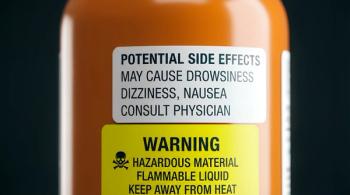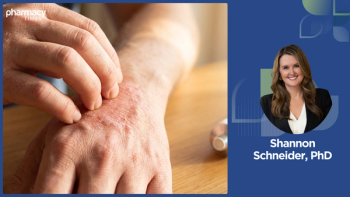
Effective Partner Services Can Reduce HIV Burden in African Americans
African Americans are disproportionately affected by HIV infection in the United States.
African American individuals are disproportionately affected by HIV infection in the United States, signaling a need for focusing on effective implementation of partner services for this population, according to the CDC’s Morbidity and Mortality Weekly Report.
In 2017, the rate of diagnosis of new HIV infection among African Americans was approximately 8 times that of non-Hispanic white individuals, according to CDC statistics.
One way to mitigate HIV incidence is to offer partner services, which provides testing and related services to individuals with diagnosed HIV infection and their sex- or needle-sharing partners, according to the report.
“Effective implementation of partner services is important to identify HIV infection, link patients to care or reengage them in care, and provide prevention services to reduce HIV transmission,” the CDC researchers wrote.
For the report, the researchers analyzed 2016 client-level partner services data from the National HIV Prevention Program Monitoring and Evaluation system submitted by 59 health departments. Among 49,226 index patients identified as potential candidates for partner services, 43% were black. Of the 11,088 African American partners named by index patients, 78% were notified of their potential HIV infection and exposure and just 47% of those notified were tested for the virus. Seventeen percent of partners who were tested received a new HIV diagnosis.
The researchers noted that the prevalence of newly-diagnosed HIV infection was highest among African American partners who were gay, bisexual, and other men who have sex with men (MSM) (37%), as well as transgender individuals (38%).
The highest percentages of testing occurred among African American partners who were aged 13 to 19 years old (64.9%), females (60.4%), residents of the Northeast (50.4%), residents of low HIV prevalence areas (72.7%), and heterosexual men (68.4%).
According to the researchers, prevention efforts that promote HIV testing and consistently include partner services may lead to early diagnosis and improve HIV-related health outcomes among the African American population.
They recommended that partner service program managers ensure that disease intervention specialists have access to all the resources needed to identify and locate partners named by index patients. Additionally, partner services should facilitate linkage to care for newly-diagnosed patients, as well as linkage to pre-exposure prophylaxis for those at high risk.
Reference
Rao S, Song W, Mulatu MS, et al. HIV partner serviced delivery among blacks or African Americans — United States, 2016. Morbidity and Mortality Weekly Report. 2019.
Newsletter
Stay informed on drug updates, treatment guidelines, and pharmacy practice trends—subscribe to Pharmacy Times for weekly clinical insights.





























